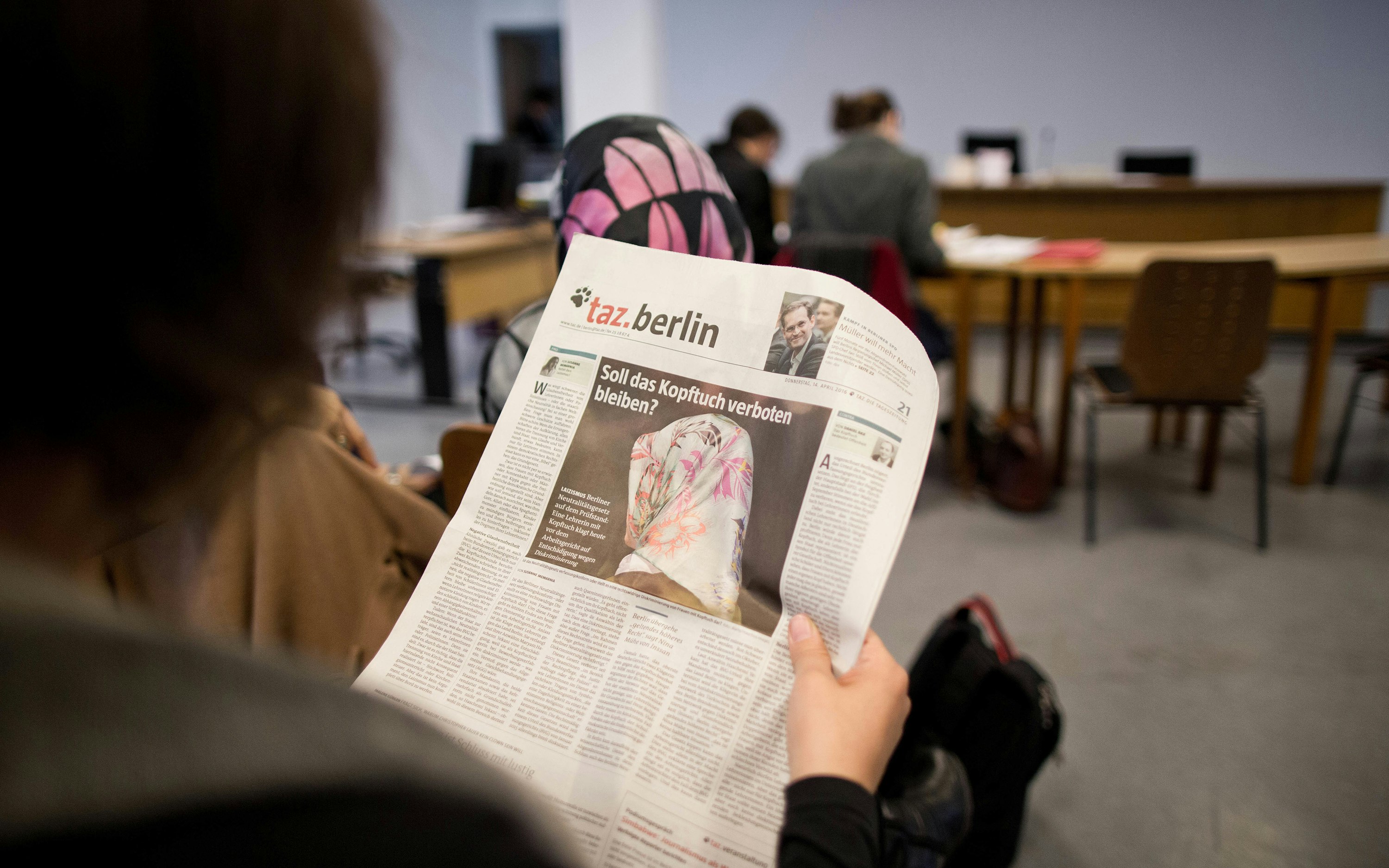ECJ Reaffirms Restrictions Excluding Muslim Women in the Workplace
Today, the top European Union court—the Court of Justice of the European Union (CJEU)—made it clear that employers can restrict the wearing of "religious symbols," such as Islamic headscarves, but only in limited circumstances.
The CJEU found that such policies must be applied in a general and undifferentiated way, and that they must be based on evidence that they are necessary to meet a “genuine need on the part of the employer.” The court went on to say that, “national courts may consider the specific context of their Member State” and, in particular, “more favorable national provisions on the protection of freedom of religion.”
The decision has far-reaching implications and may continue to exclude many Muslim women–and those of other religious minorities–from various jobs in Europe.
The ruling will be binding on all 27 member states of the EU, including the Netherlands, Austria, and Germany, where domestic employment rights and standards offer more protection to religious minorities than those offered by the CJEU judgment.
“Laws, policies, and practices prohibiting religious dress are targeted manifestations of Islamophobia that seek to exclude Muslim women from public life or render them invisible,” said Maryam H’madoun, senior policy officer with the Open Society Justice Initiative. “Discrimination masquerading as 'neutrality' is the veil that actually needs to be lifted. A rule that expects every person to have the same outward appearance is not neutral. It deliberately discriminates against people because they are visibly religious.”
Courts across Europe and the UN Human Rights Committee have long emphasized that the wearing of a headscarf does not cause any form of harm that would give rise to a “genuine need” by an employer to implement such practices.
H’madoun went on to say, “To the contrary, such policies and practices stigmatize women belonging to or perceived to belong to Europe’s racial, ethnic, and religious minorities, increasing the risk of higher rates of violence and hate crimes, and risking the intensifying and entrenching of xenophobia and racial discrimination, and ethnic inequalities. Employers who implement these policies and practices should tread carefully, as they risk being found liable for discrimination under both European and national laws if they can't demonstrate a genuine need for a religious dress ban.”
The ruling will now return to German courts for final decisions on the two cases based on Thursday's guidance on EU law from the Luxembourg-based judges.
In the first case, a Muslim employee of an interdenominational day-care center had been given several warnings because she had come to work wearing a headscarf. The Hamburg Labor Court then heard a case on whether those entries must be deleted from her personnel file. The court turned to the CJEU.
In the second, the Federal Labor Court took a similar approach in 2019 with the case of a Muslim woman from the Nuremberg area who had filed a complaint against a headscarf ban at the drugstore chain Mueller.
Related Work
Case Watch: German Court Sides with Muslim Women Teachers Over Discriminatory Headscarf Ban
A recent judgement by Germany's top labor court is expected to end a decades old court battle over headscarf bans for teachers.

One-Third of EU Countries Have National or Local Bans on Muslim Women’s Dress
A new survey details dress restrictions enacted by both local and national governments, and by businesses and other institutions across the European Union.
EU Top Court Fails to Guarantee Muslim Women’s Right to Wear a Headscarf at Work
The Court of Justice of the European Union has ruled that it is not direct discrimination on grounds of religion for an employer to bar workers from wearing religious clothing.